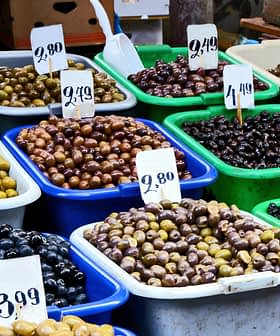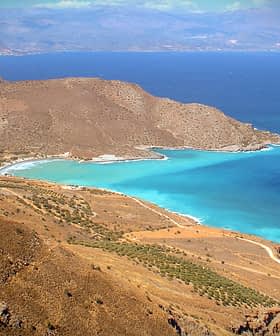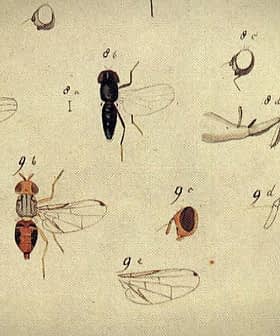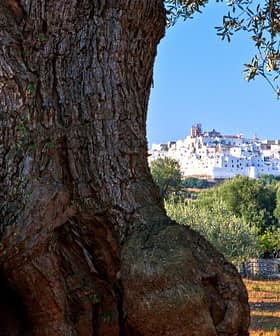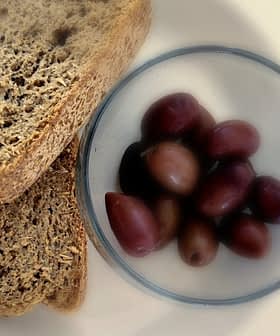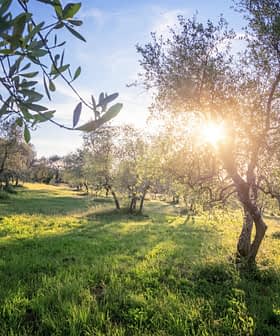Olive Fruit Fly Could Undermine Greek Olive Oil Production
The fruit fly threatens expectations of a bumper crop. Experts suggest a change in established practices of fighting the pest.
 Olive fruit fly
Olive fruit fly  7.3K reads
7.3K readsThe olive harvest in Greece is expected to bring increased olive oil production and high producer prices, but the olive fruit fly poses a significant threat to the sector. The fruit fly infestation has caused losses in olive production on islands like Lesbos and has led to concerns about the quality of olive oil in regions like Crete, prompting calls for new pesticides and a more efficient strategy to combat the pest.
With the olive harvest in full swing in Greece, the expected olive oil production increase along with high producer prices, which remain steadily above €4.50 per kilogram of extra virgin olive oil, have raised producers’ hopes for a rewarding crop this year.
However, the constant threat of the olive fruit fly has again emerged as a challenging puzzle for the country’s olive oil sector to piece together.
The annual program to contain the fruit fly in the country’s producing areas has to move away from the state and go into the hands of farmers themselves.
In the summer, increased insect populations were recorded in several areas across the country.
Some late crop-dusting operations to prevent further pest breeding occurred in several olive oil-producing regions in October, including parts of Crete and the Peloponnese peninsula. However, the fly still causes anxiety for producers.
See Also:Croatian Olive Grower Innovates to Overcome Drought, PestsIn the region of Ilia in western Peloponnese, the fly has been detected primarily in coastal producing areas and small olive groves, according to the local department of agriculture.
The department attributed the fruit fly appearance to the combination of temperature and humidity prevailing in the area this time of year. It warned producers to remain vigilant and take all the necessary measures to protect the season’s olive oil production.
On the island of Lesbos, a meeting of local producers, agronomists and representatives of the local administration on the fruit fly control program failed to reach an agreement on the next steps required to mitigate the threat of the fly to local olive oil production.
According to the producers, around 40 percent of olives have been lost from the island’s olive trees this year due to extended fruit fly infestation.
On the other hand, the administration’s agronomists argued that almost a third of the island’s olive trees are of advanced age and should be renewed to become resistant to illnesses.
On Crete, where a bumper crop of more than 100,000 tons of olive oil is expected this year, the lack of workers has resulted in the olives being more susceptible to attack by the fruit fly since the fruits remain exposed on the trees longer than usual.
“As the harvest unfolds, we see the worms [from the fruit fly breeding] left on the tractor trailers when the producers transfer their olives to the mill for processing,” said Yiannis Koukakis, a miller based near Chania.
“We need workers to work in the fields,” he added, referring to the scarcity of laborers in the area. “There are people who want to work here, for example, civil servants and others serving in the armed forces, but the state does not allow them to get a second job legitimately, and they have to work illegally to increase their income.”
In the nearby district of Apokoronas, the authorities urged the local producers to harvest their olives as soon as possible to avoid any severe impact of the fruit fly on the quality and quantity of the produced olive oil.
Chemical analyses have shown that the acidity of the area’s olive oils has started to increase above normal levels this season.
See Also:In Greece, Millers Call for Subsidies to Soften Impact of Rising CostsMeanwhile, the association of Cretan agronomists noted that the fly has become immune to existing pesticides and asked the agriculture ministry to make new pesticides available to producers on Crete and across the rest of the country.
“The fight against the olive fruit fly is facing many difficulties the recent years, mainly due to the withdrawal of previously licensed active substances, but also due to the resistance of the fruit fly to pyrethroid insecticides,” the association wrote in a letter to the ministry.
“Especially in some areas of Crete, the resistance is quite high,” they added. “Consequently, it is imperative to increase the available pesticides against the fly by evaluating and licensing new active substances.”
However, the established operational pattern against the fruit fly in Greece is considered inefficient by some experts.
“The existing legislative framework pertaining to battling the olive fruit fly was introduced in 1976 with no substantial improvement whatsoever for almost 50 years,” the expert olive oil taster and consultant Vassilis Frantzolas told Olive Oil Times.
“The annual program to contain the fruit fly in the country’s producing areas has to move away from the state and go into the hands of farmers themselves,” he added.
In Greece, the use of traps and extensive crop-dusting activities against the olive fruit fly is regulated by the country’s regional authorities. Then, the actual field operations are assigned to external operators, with olive farmers contributing to the venture with a fee of 2 percent of the value of the produced olive oil.
Frantzolas said that in other olive oil-producing European countries, including Spain, Italy and France, olive oil producers receive data in real-time about the existing cultivating conditions, including information about manifestations of the fruit fly and other diseases of the olive tree and directions on how to confront them.
“Even more, the crop-dusting operations against the olive fruit fly in Greece rely on chemical pesticides, a practice which is wrong by default,” he said.
“Greece, being an E.U. member state, is obliged to apply the 2009/128 directive on the sustainable use of pesticides, taking account of precautionary and preventive approaches before any spraying of pesticides,” Frantzolas concluded. “This is simply not the case in the country.”
Share this article


